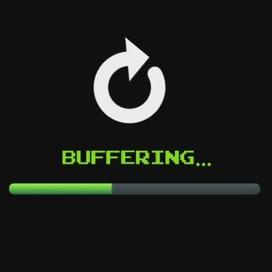BOB: And I’m Bob Garfield. [sound of EKG beeping] We thought it was dead… [sound of flatline] ...network neutrality, the principle that all internet traffic should be treated equally by broadband providers. Net neutrality has wide support, but also rabid opponents in telecoms and other ISPs who have the money and influence to kill policies dead, dead, dead. But then, on Monday… [defibrillator sound then beeping] net neutrality was resuscitated by an unlikely paramedic...
OBAMA: That’s why I’m laying out a plan to keep the internet free and open. And that’s why I’m urging the Federal Communications Commission to do everything they can to protect net neutrality for everyone.
BOB: That’s right, for his post-midterm policy debut, lame duck President Barack Obama chose to throw his weight not behind the Mideast peace process, not energy independence, not immigration reform but ….net neutrality! In a post on the social-publishing platform Medium, Obama laid out four, quote, “bright-line rules” for the FCC to adopt to regulate ISPs. They include no blocking of websites, no intentional slowing down of content, increased transparency prior to that so-called “last mile,” when the ISP connects to your home, and no paid prioritization of certain websites over others. That means nobody could pay -- or be shaken down by ISPs for -- tolls to get their traffic in a privileged fast lane. But Obama’s boldest proposal was this:
OBAMA: To put these protections in place I’m asking the FCC to reclassify internet service under Title 2 of a law known as the telecommunications act.That request was the defibrillator. In 2010, the FCC tried to regulate broadband under title 1 of the telecommunications act -- but was rebuffed by a federal court. It was a matter of right church, wrong pew. As New York Times reporter Edward Wyatt explains it, the US Circuit Court in DC objected not because the FCC has no statutory authority, but because the agency was pinning that authority on the wrong provision of the statute.
WYATT: Under the old approach which started in 2010, the FCC said it had the authority to enforce no blocking and non-discrimination requirements on internet service providers. The same things that Obama said that he wants to do. But the court said, you're treating these broadband providers as a public utility - and that's common carriers - much like phone companies. That oversteps what authority you have and you can't do it that way. They didn't say 'you can't do it' the just said 'you can't do it the way you did it.'
BOB: Now as I understand it Ed, the court said to the FCC 'to get what you want you can achieve it in one of two ways. 'Number 1: you can have authority under Title 1 - it's complicated but you can do it. Or you can reclassify broadband altogether as a common carrier like a public utility and do it that way.' But the chairman of the FCC, Tom Wheeler, hasn't exactly signaled that he's going to embrace either of those paths, has he?
WYATT: No he hasn't. Tom Wheeler was trying to navigate a path between those, come up with a sort of hybrid approach that would allow him to reclassify part of the broadband infrastructure and not reclassify part of it. It's a split-the-baby approach that really most sides hated.
BOB: After his midterm defeat the President decided to have one of his signature policies...eh...net neutrality. And, at least nominally, he doesn't have to battle the Congress to be successful, right? Because...this is between the FCC and the Circuit Court in DC, no?
WYATT: Right. Congress doesn't have to improve. But they have oversight of the FCC. And so Congress can call Tom Wheeler up to Capitol Hill many times over the next two years questioning every action that he takes. And doesn't take.
BOB: Even if Congress isn't a party to the next step or two. The rumblings there are already suggesting that net neutrality will be the next Obamacare. Big fat target of not only the GOP but of the Tea Party faction. What's going to happen?
WYATT: Well, what's going to happen is ... in a few months...the FCC is going to come out with a proposal, deciding one way or the other whether to classify broadband as a utility. It will be voted on by the FCC. It will be a 3-2 vote. Three Democrats for and two Republicans against. And it will be adopted. And either one of the companies or one of the public interest groups will wait a year or so - challenge it. And then it will be taken into court.
BOB: I asked you if this was going to be the Obamacare of the next Congress. I wonder if it's actually set up to be the Roe v. Wade. The never-ending battle between ideological opposites.
WYATT: Well, it could be. Except in this instance, ideological opposites in one circumstance are on the same side. The Republican have cited the Supreme Court case that upheld the ability of the FCC to say 'broadband is not a utility.' Writing a dissent in that decision was Justice Scalia who said, 'you guys are crazy; obviously broadband is a utility.' So we have this unusual circumstance where, if this goes to the Supreme Court. You know in Justice Scalia you have someone who thinks the same way President Obama does about broadband is a utility.
BOB: Scalia and Obama on the same page. Ed, thanks so much.
WYATT: Thank you.
BOB: Edward Wyatt covers net neutrality and the FCC for The New York Times.
